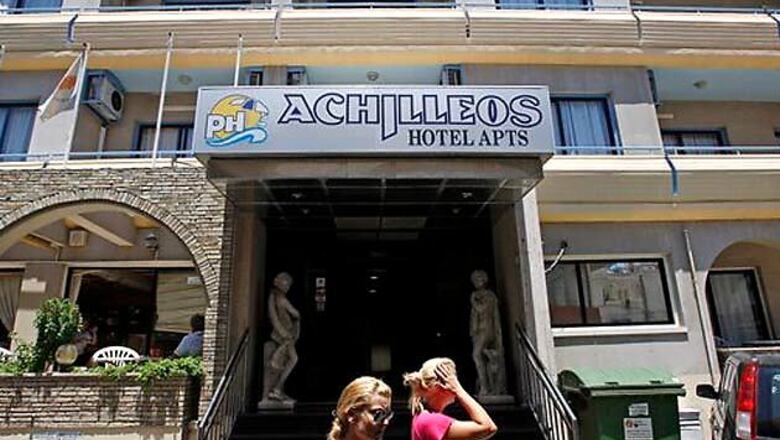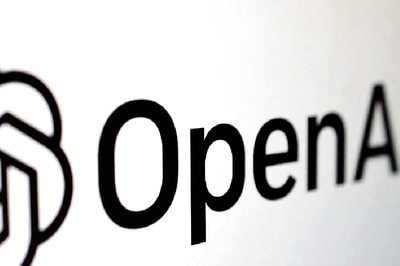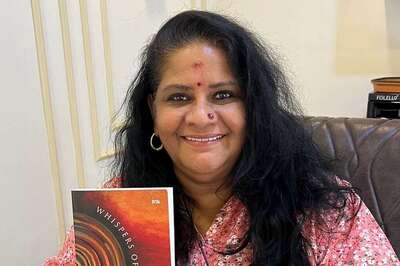
views
New York: Russian and the United States sought to shield improving ties from fallout in a Cold War-style espionage case on Wednesday, while a key suspect went missing after jumping bail in Cyprus.
After initially attacking the US announcement of the arrest of 10 spy suspects as "baseless and improper" -- raising the specter of a diplomatic standoff -- Moscow stepped back with more conciliatory comments.
Neither nation wants to undermine fragile improvements in long-strained ties, political analysts said.
"We expect that the incident involving the arrest in the United States of a group of people suspected of spying for Russia will not negatively affect Russian-US relations," a Foreign Ministry official said, on condition of anonymity.
US officials echoed Russian hopes that the scandal, which had echoes of the fiction of John le Carre, would not ruin the relationship "reset" initiated by US President Barack Obama and embraced by Russian President Dmitry Medvedev.
"We are going to work as hard as we can to move beyond this," State Department spokesman P.J. Crowley told a news briefing on Wednesday.
"It is absolutely evident that the scandal will wind down, as neither side wants a disruption of the 'reset' (of relations)," said Alexander Golts, a Russian military analyst.
A senior Obama administration official said Under Secretary of State for Political Affairs William Burns had discussed the matter with the Russian ambassador in Washington.
The US Justice Department on Monday announced it had arrested 10 suspected spies in four locations on the eastern seaboard, where some of them had led seemingly typical suburban lives among unsuspecting neighbors.
SUSPECT SPY ON THE RUN
An 11th suspect, Christopher Robert Metsos, 55, was arrested in Cyprus on Tuesday and freed on bail. Cypriot police said on Wednesday that Metsos was missing and that a warrant for his arrest was being prepared for violating the bail terms.
Metsos had been expected to sign in at a police station in the coastal town of Larnaca but failed to appear, police said.
Metsos was accused of receiving and distributing money to the group, which US officials say collected information on issues ranging from nuclear weapons research to the global gold market and CIA job applicants.
According to the Justice Department, he had received payments from a Russian official affiliated with Russia's mission to the United Nations in a spy-novel style "brush-pass" handoff, and also buried money in rural New York that was recovered two years later by other suspects.
US accusations recalled spy scandals of the Soviet era and the more recent chill in relations with a Kremlin which, during the 2000-2008 presidency of ex-KGB officer Vladimir Putin, often accused the West of trying to weaken Russia through espionage.
But analysts said neither nation is in the mood for a new downturn in relations.
Russia is counting on US backing to clinch entry into the World Trade Organization, where it is the largest economy still banging on the doors after a 17-year accession campaign.
That support was high on Medvedev's agenda at a summit with Obama last week that followed a visit to California's Silicon Valley, a hub of US expertise crucial to Russia's uphill battle to modernize its overly resource-reliant economy.
Obama needs Russia on his side for efforts to rein in Iran's nuclear program, keep supply lines open to forces in Afghanistan and advance his goal of progress toward a world without nuclear arms.
The relatively mild Russian rhetoric clearly indicated that the Kremlin wants to limit the damage, Golts said.
Putin sent that message on Tuesday, telling ex-US President Bill Clinton that US police were "out of control" and "throwing people in jail." But he then added that they were just doing their job, and said he hoped the spy scandal would not reverse "all the positive gains."
Russian-US ties deteriorated steadily after the US-led invasion of Iraq in 2003, which Putin vehemently criticised, and hit new lows when Russia sent forces into pro-Western Georgia in a five-day war in 2008.
Signs of new warmth since then include Russia's backing of new sanctions against Iran this month and the major nuclear arms control treaty Medvedev and Obama clinched in April.




















Comments
0 comment